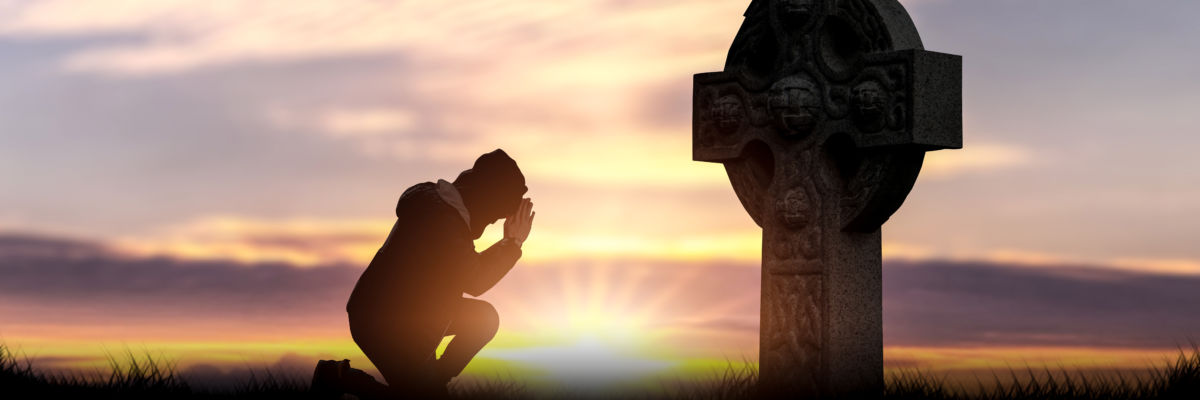
Homily for the Twelfth Sunday in Ordinary Time, 2021
For the love of Christ impels us, once we have come to the conviction that one died for all; therefore, all have died. He indeed died for all, so that those who live might no longer live for themselves but for him who for their sake died and was raised (2 Cor. 5:14-15).
“The love of Christ impels us.” These words tell us a great deal about the nature of love: both in Christ and in us, his disciples and friends. The verb impels could also be rendered as “compels” or “constrains” or “drives.”
Is someone—Christ, or we ourselves, or St. Paul—free when he is compelled or constrained or driven to do something or other? This is an important question to consider here, since love is the highest value of our Christian life; it is the substance of God himself, the content of the new commandment made at the first holy Mass in the Upper Room, the thing that “abides forever.”
Nowadays and far too often, free will or choice is exalted as the supreme value and condition of the moral life. I am here to tell you that it is not at all. Free will or free choice is simply the state of affairs that occurs when more than one choice is presented to a person. Then that person must deliberate as to which choice is the best one.
As long as we can consider one thing as more desirable than another, we are free to choose it—even if it not really better than the alternatives. This is because here below we are able to perceive good things but we do not yet see Goodness itself, the supremely good and source of all other goods. So we are able to prefer lesser goods to the Good.
Yet in our age, even among orthodox Catholics, people speak of free will as being practically the highest dignity we can have. This tendency is taken to extremes. Why, you even hear preachers and others say that the reason God allows for hell and damnation is that he “respects our freedom.”
Oh, please, do they really mean to say that God prefers asserting the value of our freedom of choice over his will to create us and make us happy?
No, hell means that we are able to be so determined in our choice of lesser goods that we definitively reject the Supreme Good. (And by the way, let me be so bold as to say that hell has little to do with God at all. I do not say that it has nothing to do with him, but that he certainly does not allow that realm of misery in order to make it his kingdom of free choice! That would be a devilish, not a divine thing.)
Free choice is a good thing, but it is a provisional, temporary combination of our reasoning power and our will to be used and trained here below to choose those good things that will lead us to possess someday the Supreme Good in the happiness of eternal life.
Once we possess God as our essential good and happiness, absolutely and immediately, and not relatively, then we will be unable to resist—we will be urged, driven, compelled, constrained, impelled to embrace him and nothing in place of him. In heaven we will not be free not to love him above all things and all things in him.
Now you and I both know that not to be free not to love God is a far happier state of affairs than to be able not to love him!
Was the Savior free not to love St. Paul? No! Are the saints in heaven free not to love us? No! Their life is perfected in knowledge of the Good, and their love is the most perfect of all. They cannot not love rightly and completely, just as God does. And yet their “choice” is compelled by their perfect love.
The more fully we share in the love of God, the more we are ruled by it, and the more we love God the less free we become to reject him. Are true lovers free to reject each other? Does a mother experience full freedom not to love the baby at her breast? Was St. Teresa fully free to reject her ecstasies? All the more does the love of Christ constrain us, while it contains and perfects all these other loves.
The principal evil in our current age is the notion that free choice is an absolute value, rather than what it is: a combined power that needs to be educated, trained, and filled with grace in order to navigate prudently and lovingly the world of lesser and greater goods in view of the greatest Good. Christ’s love given to us in the apostolic teaching and in the sacraments and means of grace urges us on to reach the intense happiness of eternal life, in comparison to which all our free choice seems only a pale reflection.
Instead of focusing on choices that are free, let us “have the mind of Christ” and focus our attention on determining our choices so habitually to what is truly good that we will someday be captured and enthralled and compelled by the love of God, never more to be separated from him.
It is the month of the Sacred Heart who is truly driven to love us. What a consolation to know that we have this love for the asking, so that we too can be drawn and impelled by it!



